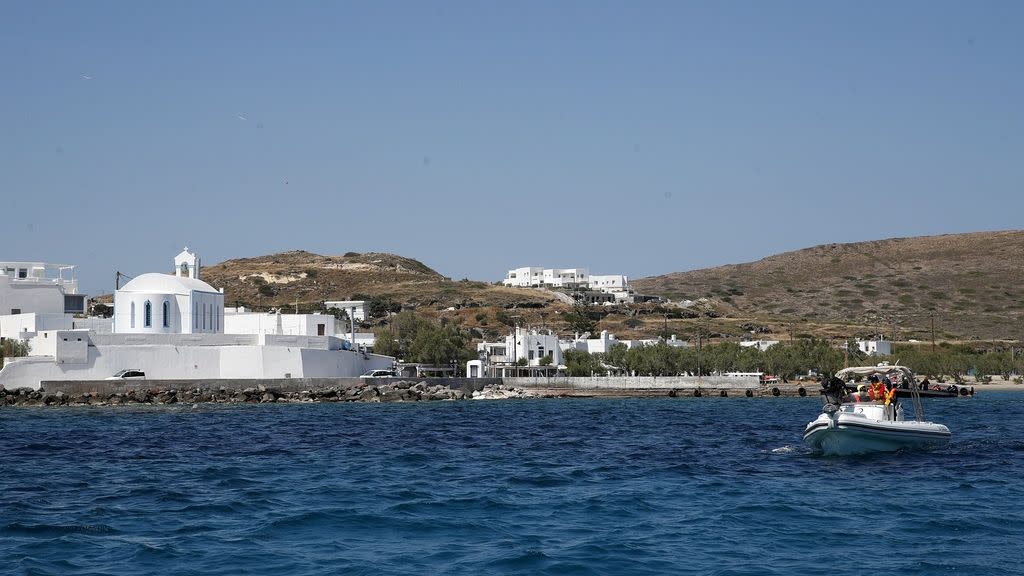As EU elections approach, Greek islanders are stuck between hope and despair

For many Europeans, Mediterranean islands are their favourite summer playground. Yet, those who live year-round on hundreds of Europe's islands, such as Milos in Greece, have been facing hardship, with the daily lives of many reduced to make ends meet.
Now, as the European elections are about to take place in just a couple of days, some residents are concerned nothing will change for those in the EU's southernmost corner, while others show signs of outright resignation.
“People don’t really care about European elections because they haven’t realised their importance, Spiros Loukakis, bar owner on Milos, told Euronews. “They don’t understand that most of the decisions are made in Brussels and applied to all member states.”
"So they don’t think it’s very important to participate or get involved."
Voters who care are disappointed, and they say that the EU must take action to help the islanders.
“The EU can do many things for the islanders and it must do them,” Vasilis Papikinos, chef and restaurateur, told Euronews.
“When I say ‘must do’, I don’t mean it in some mandatory sense. But here, we feel isolated; in some way, we feel like second-class citizens. For example, in terms of taxes or transportation and its cost, or the cost of products."
Home of the famous Venus of Milo, now residing at the Louvre, the island of some 5,000 in the Aegean Sea has always relied on its warm climate and an abundance of agricultural and seafood products.
Oranges, olives, cotton and barley have all grown on the island for centuries. Today, fishermen and farmers alike worry about their livelihood and are asking the EU to take measures to protect the ecosystem of the land and the sea they live from.
“There is a problem with the fishing stocks. But they take no measures nor do any controls to fix the issue,” Frantzeskos Mavrogiannis, fisherman, said.
Farmers, in particular, believe fairer EU policies would allow them to profit from their labour.
“In the old days, we had some profit if we worked hard,” Katerina Xydou told Euronews. “We also had employees, and we were good in theory, and we made a profit.”
“Now we have to reduce our production; we have to deal with insects that destroy our crops wherever we have them,” she explained.
Watch the full report in the player above to find out more.


